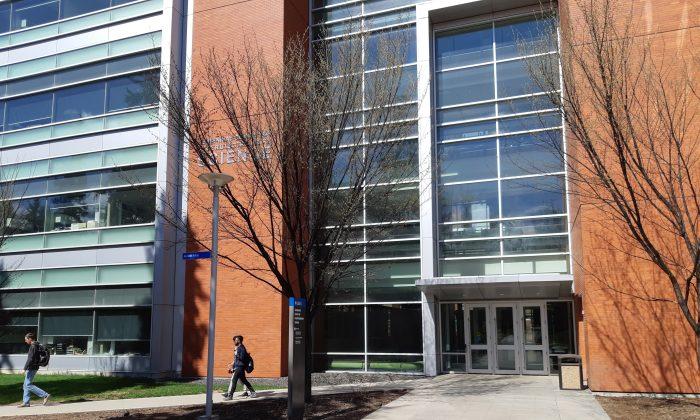Alberta’s minister of advanced education is taking action to address concerns that Canadian research is being stolen by the Chinese regime or, even worse, being used by the communist state for military purposes or in human rights violations.
“We do have a problem, not just in Alberta but across Canada,” Demetrios Nicolaides told The Epoch Times. “We have great universities and great colleges that produce terrific and incredible research and new discoveries, but oftentimes we sell a lot of those research rights to other companies, including other countries.”
In the interview, the minister said that “there is some concern from federal authorities, like the Canadian Security [Intelligence] Service, that some of this research could be used in ways that they are not intended to be used in, or be used for military purposes ... or in human rights abuses.”
Seeking a ‘Thorough Understanding’
Nicolaides’ letter to the universities came in response to a Globe and Mail article on May 3 noting that the University of Alberta (UA) “is carrying out extensive scientific collaboration with China that involves sharing and transferring research in strategically important areas such as nanotechnology, biotechnology, and artificial intelligence.”The four institutions Nicolaides wrote to include UA as well as the University of Calgary, University of Lethbridge, and Athabasca University. They have 90 days to submit a report to the Ministry of Advanced Education.
“It’s important that we get a good level of understanding as to what kinds of partnerships are our universities engaged in, what type of research activity are they working on, … what is that level of involvement and how our universities and colleges are involved.”

Co-ordinated Response
According to an Australian Strategic Policy Institute (ASPI) report, the CCP links up China’s civilian universities with military and security agencies in order to leverage research to maximize its military power. Over 160 labs in those universities have been identified as having a strong defence-focused agenda.The problem facing universities and governments around the world, ASPI said, is that there is little accessible information on the military and security links of the Chinese universities they collaborate with, which limits the effectiveness of risk management efforts. The solution is close collaboration between universities and governments to safeguard their research from theft and exploitation by the CCP.
Nicolaides said he would like to work closely with Ottawa in a co-ordinated response and to review the guidelines the feds has been developing.
In March, Innovation Minister François-Philippe Champagne announced a working group that would develop “specific risk guidelines to integrate national security considerations into the evaluation and funding of research projects and partnerships.” The guidelines are to be provided to the government for consideration by June 25.
Nicolaides stressed that the federal guidelines must be strong and clear. Should his department find them not strong enough and not going “as far as they need to,” Alberta would undertake to strengthen them, he said.
“What we need to do is give our universities and our researchers some clear guidelines and explain what types of things they should be looking out for, what are the warning signals, what are the warning flags that a researcher should consider if working with the CCP or other organizations.”
He said the intention is not to limit the work of researchers in any way, but to ensure security concerns are addressed.
“We just want to make sure that [their work] is not being used in unintended ways.”





